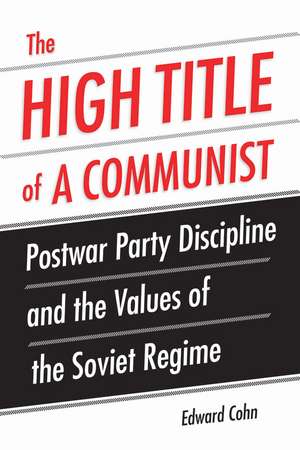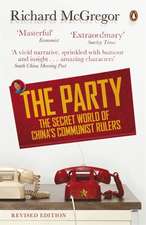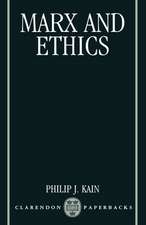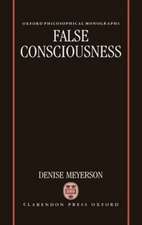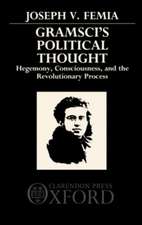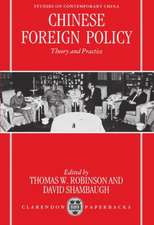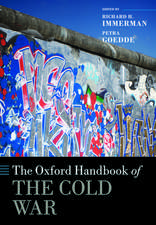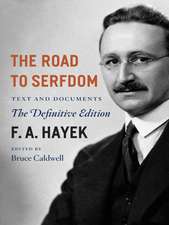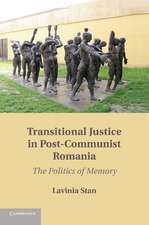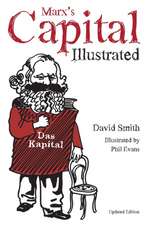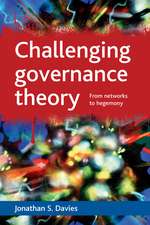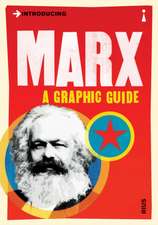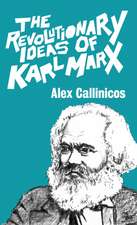The High Title of a Communist: Postwar Party Discipline and the Values of the Soviet Regime
Autor Edward Cohnen Limba Engleză Hardback – 18 iun 2015
Between 1945 and 1964, six to seven million members of the Communist Party of the Soviet Union were investigated for misconduct by local party organizations and then reprimanded, demoted from full party membership, or expelled. Party leaders viewed these investigations as a form of moral education and used humiliating public hearings to discipline wrongdoers and send all Soviet citizens a message about how Communists should behave.
The High Title of a Communist is the first study of the Communist Party’s internal disciplinary system in the decades following World War II. Edward Cohn uses the practices of expulsion and censure as a window into how the postwar regime defined the ideal Communist and the ideal Soviet citizen. As the regime grappled with a postwar economic crisis and evolved from a revolutionary prewar government into a more bureaucratic postwar state, the Communist Party revised its informal behavioral code, shifting from a more limited and literal set of rules about a party member’s role in the economy to a more activist vision that encompassed all spheres of life. The postwar Soviet regime became less concerned with the ideological orthodoxy and political loyalty of party members, and more interested in how Communists treated their wives, raised their children, and handled their liquor. Soviet power, in other words, became less repressive and more intrusive.
Cohn uses previously untapped archival sources and avoids a narrow focus on life in Moscow and Leningrad, combining rich local materials from several Russian provinces with materials from throughout the USSR. The High Title of a Communist paints a vivid portrait of the USSR’s postwar era that will help scholars and students understand both the history of the Soviet Union’s postwar elite and the changing values of the Soviet regime. In the end, it shows, the regime failed in its efforts to enforce a clear set of behavioral standards for its Communists––a failure that would threaten the party’s legitimacy in the USSR’s final days.
The High Title of a Communist is the first study of the Communist Party’s internal disciplinary system in the decades following World War II. Edward Cohn uses the practices of expulsion and censure as a window into how the postwar regime defined the ideal Communist and the ideal Soviet citizen. As the regime grappled with a postwar economic crisis and evolved from a revolutionary prewar government into a more bureaucratic postwar state, the Communist Party revised its informal behavioral code, shifting from a more limited and literal set of rules about a party member’s role in the economy to a more activist vision that encompassed all spheres of life. The postwar Soviet regime became less concerned with the ideological orthodoxy and political loyalty of party members, and more interested in how Communists treated their wives, raised their children, and handled their liquor. Soviet power, in other words, became less repressive and more intrusive.
Cohn uses previously untapped archival sources and avoids a narrow focus on life in Moscow and Leningrad, combining rich local materials from several Russian provinces with materials from throughout the USSR. The High Title of a Communist paints a vivid portrait of the USSR’s postwar era that will help scholars and students understand both the history of the Soviet Union’s postwar elite and the changing values of the Soviet regime. In the end, it shows, the regime failed in its efforts to enforce a clear set of behavioral standards for its Communists––a failure that would threaten the party’s legitimacy in the USSR’s final days.
Preț: 419.64 lei
Nou
Puncte Express: 629
Preț estimativ în valută:
80.30€ • 85.87$ • 66.95£
80.30€ • 85.87$ • 66.95£
Carte tipărită la comandă
Livrare economică 17 aprilie-01 mai
Preluare comenzi: 021 569.72.76
Specificații
ISBN-13: 9780875804897
ISBN-10: 0875804896
Pagini: 260
Ilustrații: 21
Dimensiuni: 152 x 229 x 25 mm
Greutate: 0.56 kg
Ediția:1
Editura: Northern Illinois University Press
Colecția Northern Illinois University Press
ISBN-10: 0875804896
Pagini: 260
Ilustrații: 21
Dimensiuni: 152 x 229 x 25 mm
Greutate: 0.56 kg
Ediția:1
Editura: Northern Illinois University Press
Colecția Northern Illinois University Press
Recenzii
"Edward Cohn of Grinnell College has written a solidly researched and cogently argued book."
—Canadian Slavonic Papers
"This is an important book. It has a good mixture of political and social history, which will be of interest to historians of the USSR working in both fields. Its comparative elements would also appeal to scholars seeking a broader understanding of the contemporary history of Europe."
—The Soviet and Post-Soviet Review
“Cohn’s work is an important addition to the political and social history of the postwar Soviet Union and a further demonstration that the seeming divisions between the Stalin and Khrushchev periods are not as clear as we once thought.”
—The Russian Review
“Cohn’s work contributes much to knowledge of the changing lives of Communist Party members in the immediate postwar years in the USSR. Recommended.”
—CHOICE
“Edward Cohn’s The High Title of a Communist makes an important contribution . . . by turning our attention to the Communist Party itself and specifically to how it handled wayward comrades between 1945 and 1964.”
—H-Net Reviews
“This book is a significant contribution to the field. It straddles two periods—the late Stalin and the Khrushchev eras—and identifies interesting and underappreciated continuities between them. For social historians there is also a wealth of information on how the party intruded into the private and family life of individuals and on the personal and existential trauma of being expelled from a movement to which many of its members had dedicated their lives.”
—Yoram Gorlizki, University of Manchester
—Canadian Slavonic Papers
"This is an important book. It has a good mixture of political and social history, which will be of interest to historians of the USSR working in both fields. Its comparative elements would also appeal to scholars seeking a broader understanding of the contemporary history of Europe."
—The Soviet and Post-Soviet Review
“Cohn’s work is an important addition to the political and social history of the postwar Soviet Union and a further demonstration that the seeming divisions between the Stalin and Khrushchev periods are not as clear as we once thought.”
—The Russian Review
“Cohn’s work contributes much to knowledge of the changing lives of Communist Party members in the immediate postwar years in the USSR. Recommended.”
—CHOICE
“Edward Cohn’s The High Title of a Communist makes an important contribution . . . by turning our attention to the Communist Party itself and specifically to how it handled wayward comrades between 1945 and 1964.”
—H-Net Reviews
“This book is a significant contribution to the field. It straddles two periods—the late Stalin and the Khrushchev eras—and identifies interesting and underappreciated continuities between them. For social historians there is also a wealth of information on how the party intruded into the private and family life of individuals and on the personal and existential trauma of being expelled from a movement to which many of its members had dedicated their lives.”
—Yoram Gorlizki, University of Manchester
Notă biografică
Edward Cohn is assistant professor of history at Grinnell College.
